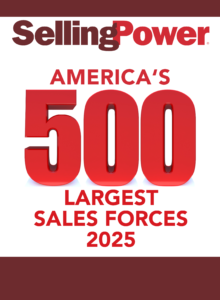No More Commission Omission
Reed Taussig believes that most companies’ sales commission plans are – to put it bluntly – all screwed up. Late payments, underpayments, overpayments, structures that even a mathematician couldn’t understand – the average sales professional would probably agree that Taussig has a legitimate beef. But unlike most critics, Taussig is doing something to change the system. As CEO of Callidus Software, an incentive compensation and commission systems solutions provider founded in 1997, Taussig is working to help some of the top Fortune 2000 sales organizations develop commissions strategies that work to benefit salespeople as well as the company’s bottom line.
Despite the technological revolution that’s come over the sales function in the past 10 years, Taussig says, somehow the sales compensation side has yet to catch up. As a result, today, despite extremely complex commission structures, even some of the top sales organizations calculate commissions using Excel spreadsheets. Confusion is the frequent result, he adds.
“If I’m a VP of sales at a typical company where the salespeople are paid on variable comp, and I go in to ask the finance people if the salespeople are being paid properly, they’re all going to stare at their toes, because they know the answer is no,” Taussig says. “The reason is that, in the absence of information, they give the salespeople the benefit of the doubt. We have found that on average there is a 7 to 10 percent error rate on sales compensation. That means that if you’re spending $100 million a year in sales comp you may be overpaying by as much as $10 million.”
But inaccurate reporting and haphazard payouts aren’t the only issues plaguing corporate America’s dominant sales compensation systems. Taussig argues that by basing salespeople’s pay on revenue instead of margins, most sales organizations wind up promoting behaviors that are out of line with corporate objectives.
“A good way to look at it is through the classic real-estate example,” he says. “Let’s say that when listing your house your real-estate agent says it’s worth $500,000. The first offer that comes along is for $400,000, yet the agent says, ‘You should take the offer.’ Why? Because the agent is paid a percentage based on the total price tag. So if he or she is getting 3 percent, then that’s the difference between $15,000 and $12,000. The agents’ incentive is to make the sale, even at a compromised price, because they’re not sharing the pain at the same level you are.”
It’s easy to see how such a commission structure affects business-to-business sales professionals as well. The impulse is to get the sale, even if that means cutting price and sacrificing margins.
“It’s a very fundamental flaw that sales organizations are crafted within corporations – it’s almost as if they’re separate companies on contract to the corporation,” Taussig says. “It’s very unfortunate. But compensation is the way to get their attention and bring them into alignment with corporate values.”
“Get their attention” is putting it mildly. If it’s poorly handled, adjusting your salespeople’s commission payment structures can incite an outright mutiny. But, Taussig adds, when you explain that the restructured plan will more accurately reflect the company’s business model, and then combine it with a foolproof system for accurate and timely commission payments, salespeople tend to accept the change much more readily. That, says Taussig, is precisely what Callidus Software offers.
The growth of dealer-channel sales also offers an opportunity for companies to use the compensation system to create a competitive advantage, Taussig says. From the independent agent’s perspective, he suggests, it will almost always be preferable to sell products and services from a client that pays promptly and offers the ability to monitor payments online.
“Let’s say you’re an independent insurance agent and you know you are going to get paid by Q&M Life Insurance for selling their life insurance policy,” he explains. “Oh, and by the way, you can get on the Web and see your commission statement every day and know that it’s correct. Vis-à-vis selling someone else’s life insurance, what are you going to do? You’re going to sell the policy you know you’ll get paid on and not the other. That’s a prime example of gaining market share through mind share.”
With a client list including such names as AOL–Time Warner, Nike, Dun & Bradstreet and J.P. Morgan Chase & Co., it’s clear that the Callidus story is resonating with some of corporate America’s heaviest hitters. Despite the double-take-worthy price tag (to handle a large sales force the system can cost upward of $500,000) Callidus is rapidly building a client base, because for most customers the system pays for itself within a year of installation.
And while there’s little question that aligning the sales commission program with corporate objectives while ironing out the administrative snafus makes good business sense, Taussig says, there are also more intangible benefits to be gained.
“As a corporation or a sales organization, it’s important to look at the big picture and think about how you establish trust. At most companies salespeople typically don’t trust their commission statements, and they’re constantly bitching to the VP of sales, who then complains to the CFO. I had lunch recently with the CFO of Veritas. He said, ‘Before I put your software in, I used to get at least a call a day from the salesmen complaining about this commission, that commission. Now I don’t remember the last time a salesperson called me to complain about the commission statement. I feel like the Maytag repairman.’”
Get our Enewsletter
Get the latest sales leadership insight, strategies, and best practices delivered weekly to your inbox.
Sign up NOW →